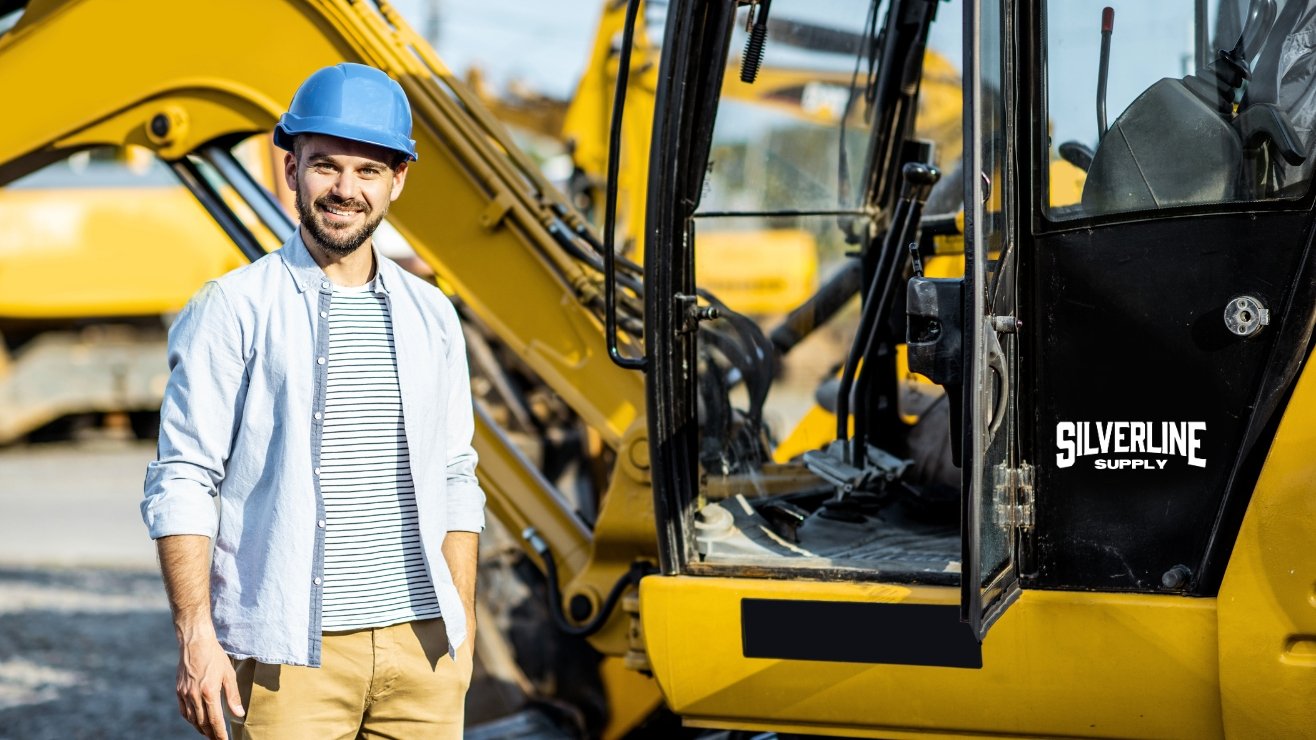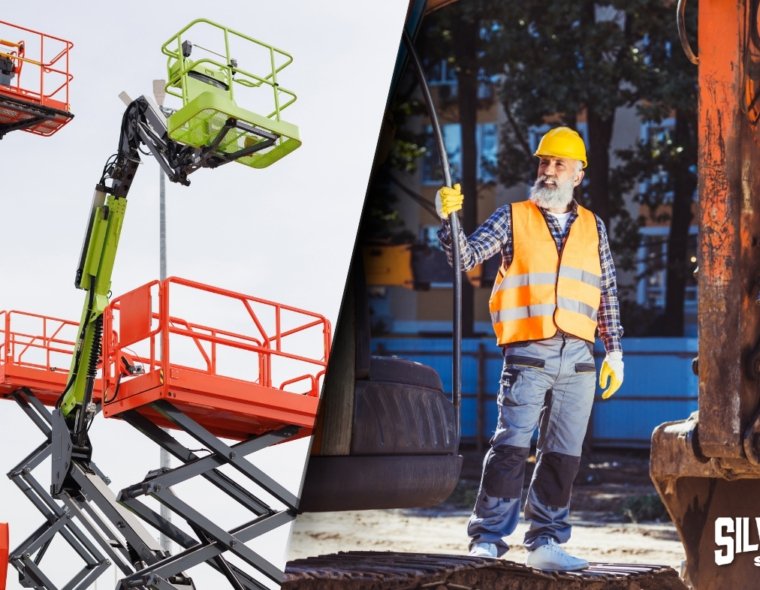Investing in construction equipment is a cornerstone decision for any business operating in the construction or heavy machinery industries. The right equipment can make or break your project timelines, productivity, and profitability. While the prospect of owning your equipment is exciting, it requires careful thought and research to ensure the purchase aligns with your operational needs and long-term goals.
This article outlines the top five things to consider when you buy construction equipment, diving deeper into critical aspects such as budget, equipment condition, long-term utility, and the role of reputable suppliers. Whether you’re expanding your fleet or upgrading existing machinery, this guide will help you make a sound investment.
1. Budget and Financial Planning
Establishing a budget is one of the most crucial steps when you buy construction equipment. Construction machinery is a significant financial investment, and understanding all associated costs ensures you make a decision that fits your financial goals without compromising quality or performance.
Total Cost of Ownership
The sticker price of the equipment is only part of the equation. The total cost of ownership (TCO) includes:
- Maintenance Costs. Routine upkeep, wear and tear, and unexpected repairs can significantly add to your long-term expenses.
- Insurance Costs. Comprehensive coverage to protect against accidents, theft, and damage is essential.
- Transportation and Logistics. Moving heavy equipment between job sites can involve considerable costs, especially for larger machines like excavators or cranes.
- Storage Requirements. Construction machinery requires secure storage to protect it from theft, weather damage, and vandalism.
Financing and Leasing Options
If your business cannot afford the upfront cost, financing or leasing can provide alternatives. Many suppliers offer attractive financing plans tailored to construction businesses, allowing you to spread payments over time.
Evaluate the terms carefully, considering interest rates, payment schedules, and the total cost compared to an outright purchase. Leasing might also be an option, but keep in mind that it doesn’t offer the same long-term value as ownership.
Depreciation and Tax Benefits
Owning construction equipment may also provide tax benefits, such as deductions for depreciation or Section 179 expensing, which allows you to write off significant portions of the purchase cost. Work with a financial advisor to fully understand the tax implications and benefits specific to your business.
2. New vs. Used Equipment
Deciding between new and used construction equipment is a pivotal choice that affects your budget, operational efficiency, and overall satisfaction. Each option has its pros and cons, and the decision should align with your immediate and long-term needs.
Advantages of New Equipment
- Warranty and Support. New machinery typically comes with robust warranties, providing peace of mind for the first few years of use.
- Latest Technology. Newer models feature advanced technology, including telematics, fuel efficiency enhancements, and automated features, which can improve performance and reduce operating costs.
- Reliability. A new machine is less likely to experience breakdowns, ensuring consistent uptime on job sites.
Benefits of Used Equipment
- Cost Savings. Purchasing used machinery can save you 20-40% compared to new models, freeing up capital for other business needs.
- Immediate Availability. Used equipment is often ready for purchase without the long lead times required for new machines.
- Tried and Tested. A well-maintained machine has proven its reliability over time.
Key Considerations for Buying Used
If you decide to buy used construction equipment, prioritize a thorough inspection. Evaluate:
- Wear and Tear. Look for visible damage on critical components like hydraulic systems, engines, and tracks.
- Maintenance Logs. Ensure the equipment has been well-maintained with regular servicing.
- Reputation of the Seller. Purchase from reputable dealers like Silver Line Supply, who inspect and certify their used inventory.
3. Condition and Maintenance Requirements
Understanding the condition of the equipment you plan to purchase is essential, especially when buying used machinery. Equipment in poor condition can lead to frequent breakdowns, unplanned expenses, and project delays.
Comprehensive Inspections
Before committing to a purchase, conduct a detailed inspection or hire a professional to do so. Pay close attention to:
- Engine Performance. Check for unusual noises, vibrations, or leaks.
- Hydraulic Systems. Ensure all moving parts are functioning smoothly without leaks or jerky movements.
- Control Systems. Verify that the machine’s control systems are responsive and fully operational.
- Undercarriage and Tires. Assess the condition of tracks, tires, or wheels for wear and damage.
Maintenance History
Request the equipment’s service history to understand its past performance and maintenance routine. This can provide insights into potential future issues and help you budget for repairs.
Serviceability and Parts Availability
Consider the ease of maintaining the equipment and whether spare parts are readily available. Some brands have limited part availability, which can lead to extended downtime. Opt for machinery from well-known manufacturers with a strong support network.
4. Long-Term Needs and Versatility
When you buy construction equipment, think about its role in your business not just today but in the years to come. Construction equipment is a long-term investment, and the right choice can enhance your business’s adaptability and growth potential.
Assess Your Workload
Understand your current and projected workload to determine the type and capacity of equipment required. For instance, a compact excavator might suffice for smaller jobs, but larger projects may demand a full-size excavator with greater digging power.
Versatile Equipment
Investing in versatile machinery that can handle multiple tasks provides excellent value. Machines like skid steers or backhoe loaders come with various attachments, making them suitable for excavation, material handling, and grading. This flexibility reduces the need to purchase additional equipment, saving costs over time.
Future-Proof Your Fleet
As your business grows, your equipment needs may evolve. Consider whether the machinery you’re purchasing can accommodate future demands. For example, some machines offer upgrade options, such as enhanced hydraulics or additional attachments, allowing them to remain relevant as your business expands.
5. Supplier Reputation and After-Sales Support
The supplier you choose plays a critical role in your buying experience. A reputable supplier provides more than just equipment—they offer expertise, after-sales support, and long-term reliability.
Evaluate the Supplier’s Reputation
Choose a supplier with a proven track record of reliability and customer satisfaction. Read online reviews, ask for references, and inquire about the supplier’s experience in the industry. A trustworthy supplier like Silverline Supply ensures all equipment meets rigorous quality standards.
After-Sales Support
Support doesn’t stop after the purchase. Reliable suppliers provide:
- Warranty Coverage. Protects you from unexpected repairs during the initial ownership period.
- Access to Parts. Ensures spare parts are readily available to minimize downtime.
- Maintenance Services. Some suppliers offer on-site servicing, which can be invaluable when your team lacks the expertise for complex repairs.
- Training Resources. Operator training can improve safety and productivity, ensuring your team gets the most out of the equipment.
Flexible Delivery Options
Efficient delivery is essential, especially for larger equipment that requires specialized transportation. Ask your supplier about delivery timelines, costs, and services like on-site setup to ensure a smooth transition to your job site.
6. Bonus Consideration: Environmental Impact
In today’s construction industry, sustainability is more than just a trend—it’s a responsibility. As businesses and governments worldwide strive to reduce their environmental footprint, incorporating eco-friendly practices into your operations can set you apart from competitors. When you buy construction equipment, factoring in its environmental impact can have far-reaching benefits for your business, reputation, and bottom line.
Lower Emissions with Modern Equipment
Newer construction equipment models often come with advanced engines designed to meet stringent emissions standards. Tier 4-compliant engines, for example, drastically reduce harmful pollutants like nitrogen oxides and particulate matter.
While these machines may have a higher upfront cost, they offer long-term benefits, including compliance with environmental regulations and potential cost savings on emission-related fines or retrofitting older equipment.
Fuel Efficiency Reduces Costs and Carbon Footprint
Fuel consumption is a significant operating cost for construction equipment, especially for machines that run for extended hours on job sites. Equipment with improved fuel efficiency not only reduces operational expenses but also lowers greenhouse gas emissions.
Features like idle-reduction technology, hybrid systems, and energy recovery mechanisms can make a big difference in both environmental impact and overall efficiency.
Renewable Energy Options
Some manufacturers are now offering equipment powered by renewable energy sources, such as electric or hybrid models. Battery-powered construction equipment, for instance, eliminates the need for fossil fuels entirely, offering zero emissions at the point of use.
While these options may not yet be practical for every application, they are an excellent choice for businesses looking to align with sustainability goals, particularly for urban or indoor projects where noise and air quality regulations are stricter.
By considering the environmental impact of your purchase, you not only contribute to a healthier planet but also position your business for long-term success. Embracing sustainable practices demonstrates your commitment to innovation, efficiency, and corporate responsibility—qualities that resonate with clients and stakeholders alike.
When you buy construction equipment, don’t just think about what it can do today—think about how it impacts tomorrow. Investing in eco-friendly equipment is an investment in your business’s future. Let Silver Line Supply help you find machinery that aligns with your operational needs and sustainability goals.
7. Final Thoughts
Purchasing construction equipment is a significant step in growing your business, but it’s also a decision that requires careful planning. By considering your budget, evaluating new versus used options, thoroughly inspecting the condition of the equipment, thinking long-term, and choosing a reputable supplier, you can ensure your investment delivers value for years to come.
At Silver Line Supply, we’re here to guide you through the process. With an extensive inventory of new and used construction equipment, flexible financing options, and industry-leading after-sales support, we’re committed to helping you make a purchase that drives your business forward.
Don’t leave your success to chance—partner with Silver Line Supply to buy construction equipment that meets your unique needs and sets your business up for long-term growth. Contact us today to explore our offerings and discover how we can elevate your operations.
Remember, the right equipment isn’t just a tool—it’s a foundation for success. Choose wisely, and let Silver Line Supply be your trusted partner in building a better tomorrow.



